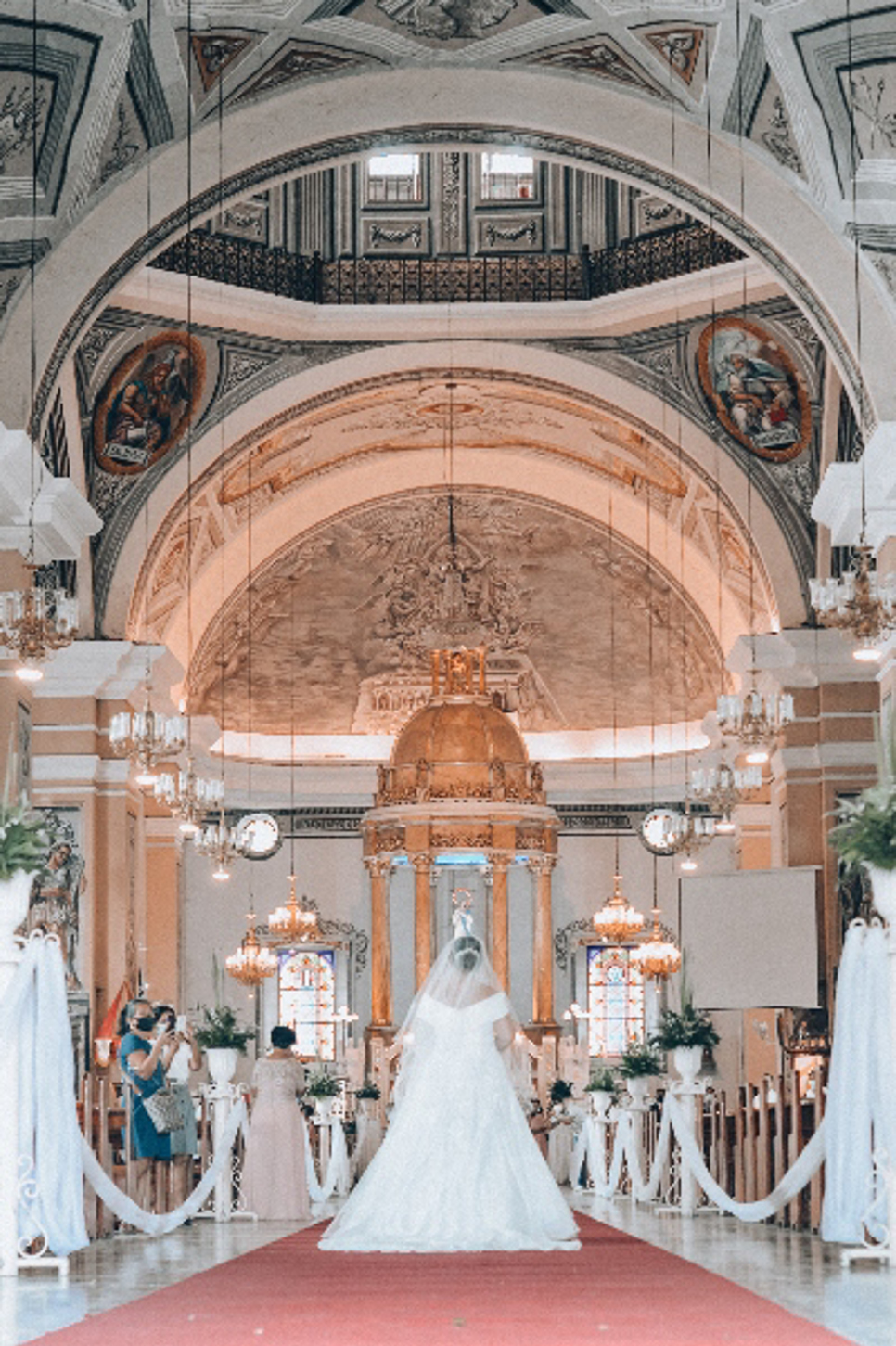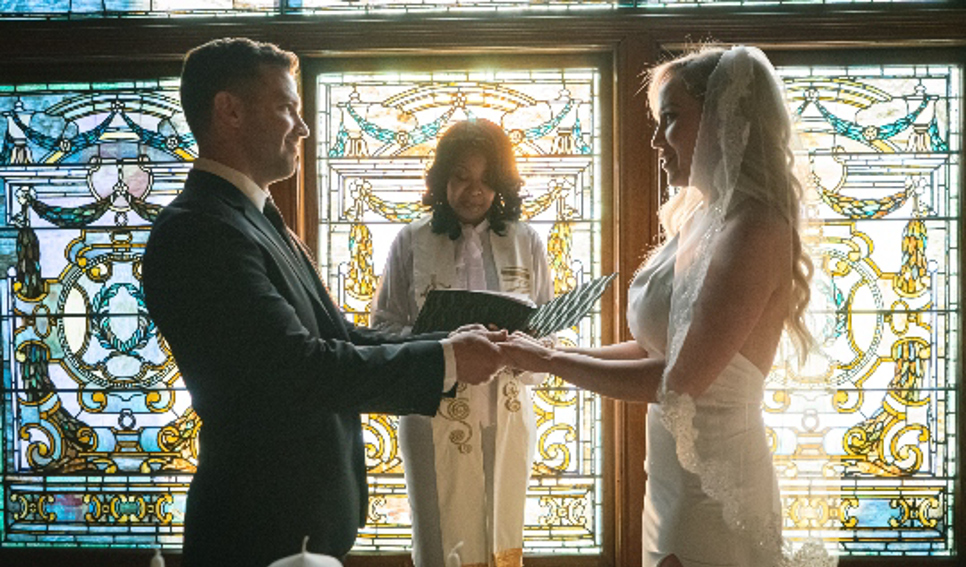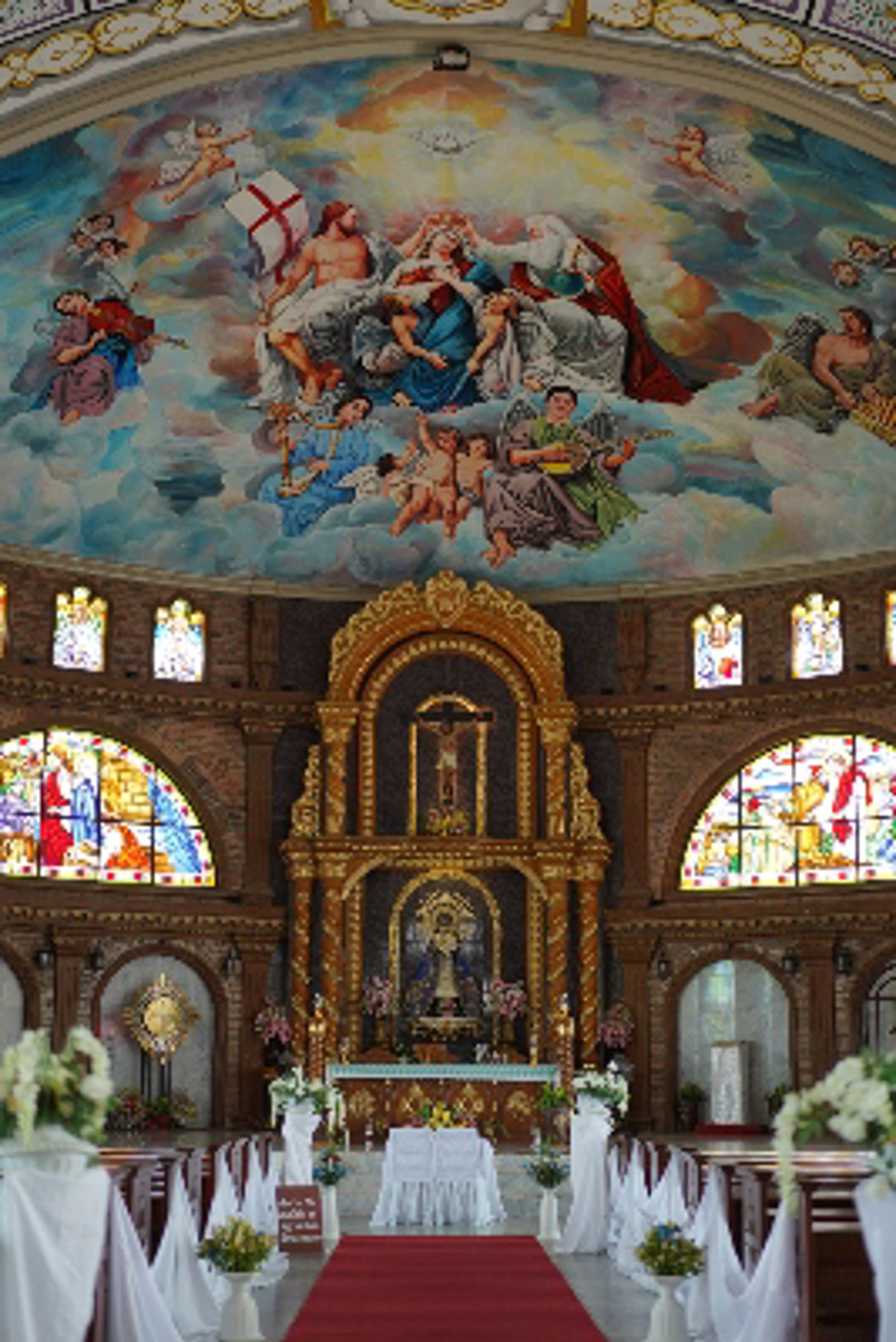Ultimate Guide to Church Weddings
When you’re planning a wedding, the first thing you will need to decide is where you will have the ceremony - this is undoubtedly the most important part of the wedding. You may know exactly where you want to get married, having dreamt of it for most of your life but, if you’re undecided, we understand your confusion - there are so many options to choose from.
A lot of couples consider church weddings and this option also causes confusion in the number of questions it generates - who can get married in a church, how much will it cost, what will the ceremony actually be like?
Never fear, we’re here to answer all of your key questions on church weddings. Read on to find out more.

1. I’m not religious - can I have a church wedding?
The short answer is, it depends on the religion that the church belongs to. Some religions prohibit the celebration of any life events - or even entering the building - unless you follow their faith. The longer answer involves having a proper think about why you want to get married in a church if you’re not religious because you will want to make sure that your decision to have your wedding there is respectful of the institution itself.
A lot of people, whilst not following a specific organised religion, consider themselves spiritual and want their wedding ceremony to mean more than what a legal contract implies. Because a church ceremony is also a spiritual covenant, a lot of couples opt to get married in a church environment to get a deeper connection and meaning attributed to their union. Some couples also have a family association with the church so they want to carry on a family tradition by continuing to celebrate a significant life event in a church context even if they don’t necessarily follow that belief. Or they may simply just like the atmospheric nature of the architecture - the stained glass, the pews etc. Whatever the reasoning, one of the most important roles of the church is to serve a community and promote hope, love, and togetherness so if you would like to get married in one, it’s definitely worth investigating.
That being said, depending on the vicar, some churches have restrictions on who can and can’t hold ceremonies in the space so it’s best to contact the church first before you set your heart on it. Some vicars prefer for the couple to have lived in the area for a certain amount of time or to have had family who regularly attends services. Some will stipulate that you must attend the church for 6 months prior to the wedding. Other, more stringent establishments, may refuse to hold the ceremony there unless you adhere to their specific faith. If the vicar does agree, you may be asked to attend a 'marriage preparation meeting. These are actually a good idea as they help you to consider potential causes of conflict in marriage and how to resolve them as well as coach you on good communication, which all of us need to have a successful marriage.
Of course in other faiths, it’s a different story but if you want to have a church wedding, choose your church carefully and be open to dialogue with the officiant.
2. How much is a church wedding?
Getting married in a church costs around £500 - with additional charges (some optional) likely to bring that total up considerably. The Church of England, for example, reminds people that aside from paying for the actual space you may need to pay for the rehearsal, and wedding banns (traditionally, the notice of marriage to the community which allow any objections to the union to be raised prior to the ceremony) being read, the banns certificate, the choir, bells or organ and even the heating. In addition to all of that, you will have to pay for the marriage notice and marriage certificate, costing a total of £100.
Adding up the totals may mean that you prefer to go for the more cost-effective option of getting married at your local registry office after all, which will cost a bit less (but still in the region of £500).

3. How long is a church wedding?
This again, depends on which religion the ceremony will adhere to but, as a general rule of thumb the religious ceremony is between 20 - 90 mins. You can influence how long the ceremony is to a degree with some church weddings by decreasing / increasing the number of readings and hymns you have for example. If you just want to get the ceremony over and done with as quickly as possible, speak to your officiant and see where you can shorten the times. Be mindful that the longer the ceremony is, the more uncomfortable some of your younger and older guests may get so if you have families with little children or elderly relatives you may want to make sure that they’re seated somewhere where they can make a quick getaway if they need to without disrupting the ceremony
Average ceremony durations:
Christian ceremony – between 20 / 30 mins
Catholic ceremony – between 30 / 90 mins
Muslim ceremony – about 20 mins
Hindu ceremony – be prepared for 1.5 – 2 hours
Judaism ceremony – between 25 / 45 mins
4. What do I need to do before a church wedding?
You will need to book your church wedding months in advance and ideally a year. This takes into consideration any times of the year when ceremonies can’t take place due to religious holidays (Christmas, Easter, Lent etc), and all the other stipulations that you must meet before you’re allowed to have your wedding in that church. Also, you may or may not be aware of wedding banns - these are traditionally read out at the church for the three preceding Sundays in the months leading up to your wedding. There are various notices you may need to give in the lead-up to the wedding depending on which part of the country you’re having your ceremony - England, Scotland, Wales, and Ireland all have slightly different requirements. Do your research, speak to the officiant and you should be able to avoid any nasty surprises or unnecessary delays in the lead-up to your big day.
5. What’s the schedule of events in a church?
So you’ve chosen your church, you got the permission to get married there, what will happen on the day? Here's a general schedule of events:
- Guests arrive and are seated by the ushers
- Groom and officiant arrive
- Music starts
- Bridal party arrives
- Bride walks down the aisle
- Welcome and prayer
- Officient talks about the couple and their story
- Reading(s)
- Vows
- Rings
- Optional ceremonies (unity candle, handfasting etc)
- Blessing and Pronouncement of Marriage
- Couple leave the church followed by the bridal party and guests
- Party time!

6. Can we use our own vows in a church wedding ceremony?
Generally speaking, in England and Wales the vows have to follow a preset format and content. In Scotland writing your own vows or tailoring the existing ones is permissible but these must be pre-approved by the minister. If you want to declare something specific to your partner but aren’t able to tailor the vows for your church ceremony, a tip would be to write them down and give them to your other half to read before the ceremony - that way they will know what’s on your mind when you say your “I dos”.
7. What happens after?
You’re married! Go celebrate. “But we have more questions!” we hear you cry. “What about confetti?”. Well, things like confetti usage depend on the church you’re getting married at. Some really prefer you to not make a mess whilst others are happy with eco-friendly versions of the stuff.
“But, can we not carry on the festivities at the church?”
Good question; yes, some churches will allow you to hold the ceremony there too but others will not have a suitable space so always check all the applicable conditions of getting married in a church.
8. I still can’t find a church to get married in - help!
Here I’m afraid we’re biased. We think getting married in Scotland is the best idea in general and in this particular situation it is especially true. That’s because, in Scotland, there are plenty of humanist churches that will allow you to have a nonreligious wedding so if you’re struggling to find a church that will accept you and your heathen ways, you can always find a welcoming venue up here.
Have a look at these great examples of Humanist churches:
- Seton Collegiate Church, East Lothian
- The Mackintosh Church, Glasgow
Wherever you end up having your wedding ceremony, the biggest tip we can offer you is to take a moment during the proceedings to take it all in - no matter how long the ceremony - 20 minutes or 2 hours - it will go so fast, blink and you’ve missed it. Just have a look at the guests’ faces, listen to the music, and enjoy every second of the biggest day of your life. Good luck!

